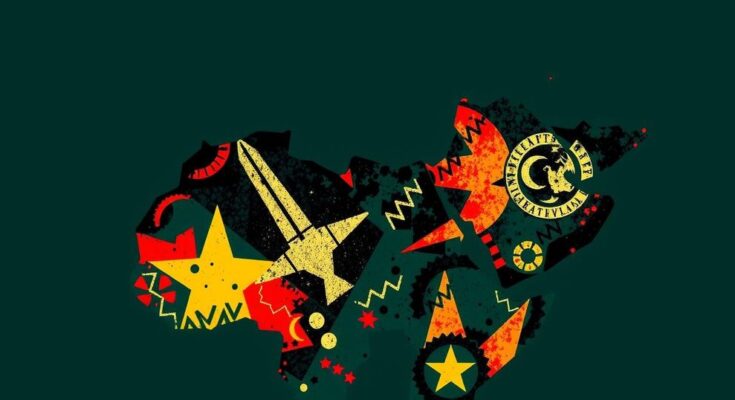Mozambique has a complex history marked by civil conflict between Frelimo and Renamo, culminating in 1994 multiparty elections after years of negotiation. Subsequent political developments included economic growth despite persistent poverty and challenges from natural disasters. The ongoing insurgency in Cabo Delgado, allegations of electoral fraud, and discontent within the populace outline the intricate socio-political landscape as the country approaches its 2024 elections, which are set to test the resilience of its democracy.
The history of Mozambique is marked by a protracted civil war largely fueled by the conflict between the Frelimo party, which identified as a Marxist-Leninist vanguard, and the Renamo insurgency. Following years of conflict, multiparty elections were held in October 1994, indicating a pivotal shift towards peace. Frelimo, under President Joaquim Chissano, transitioned from single-party socialist governance to a multiparty system by adopting a new constitution and adhering to international economic demands, including joining the IMF and the World Bank. Simultaneously, Renamo rebranded itself from a notorious rebel faction to a legitimate political party, and their leader Afonso Dhlakama engaged with international political figures. Despite Frelimo’s electoral victory, Renamo managed to secure representation within the government, leading to ongoing efforts for reconciliation amid the repercussions of the civil war, particularly the daunting presence of land mines.
In the subsequent years, Mozambique faced various challenges, including natural disasters, economic difficulties connected to debt mismanagement, and internal tensions spurred by poverty and political marginalization. The Renamo party launched a low-intensity insurgency, culminating in the adoption of a new peace agreement in 2014. However, the elections held in October of that year revealed persistent tensions, as Frelimo maintained dominance while Renamo expressed dissatisfaction with reported electoral irregularities.
The socio-economic landscape evolved significantly post-2014, where Mozambique experienced economic growth amidst a backdrop of insurgency in the Cabo Delgado province, linked to the Islamic State, resulting in a humanitarian crisis. The 2019 elections saw Filipe Nyusi and Frelimo secure significant victories but also prompted allegations of electoral misconduct, which were met with widespread opposition.
Looking ahead to the 2024 elections, the political climate remains fraught with challenges, including allegations of electoral fraud and governance issues. As Daniel Chapo, Frelimo’s candidate, faces off against opposition leaders, the concerns surrounding the election process and the ongoing tensions with Renamo will undoubtedly shape the future political landscape of Mozambique. This complex narrative illustrates the intersection of historical conflict, political dynamics, and social struggles within the country.
Mozambique has a tumultuous history characterized by a civil war that lasted for over a decade, predominantly between the ruling Frelimo party and the opposition Renamo group. This conflict necessitated years of negotiation, finally leading to the implementation of multiparty elections in 1994, which signified a pivotal moment in the country’s quest for peace and political legitimacy. The country’s transition involved significant economic reforms and challenges, impacting its socio-political fabric. Natural disasters further complicated the recovery process, while political discontent simmered beneath the surface as the populace faced persistent poverty despite economic growth. The insurgency in Cabo Delgado and concerns surrounding electoral integrity highlight ongoing struggles in the governance and political representation within Mozambique.
In conclusion, Mozambique’s journey from civil war to a potential future of improved governance reflects a complex tapestry of political strife, social challenges, and economic aspirations. The interplay between the Frelimo and Renamo parties, alongside the impact of historical grievances and emerging crises, underscores the necessity for continued dialogue and reform. The upcoming 2024 elections will be a critical juncture for Mozambique, as they will determine the trajectory of its political stability and socio-economic development amid a backdrop of pervasive challenges and discontent.
Original Source: www.britannica.com




